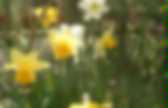

TeachDifferent Reflexion Programme 2014 v3. Reflexion Programme Script v1. Academic Papers. Warin et al Reflexive Practice. Lovat and Toomey - Values Education and Quality Teaching. Guante: Starfish (Spoken-Word) Without mistakes, we’d still be amoebas…and there would be no music. …or something like that.
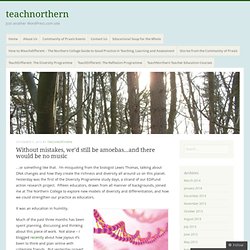
I’m misquoting from the biologist Lewis Thomas, talking about DNA changes and how they create the richness and diversity all around us on this planet. Yesterday was the first of the Diversity Programme study days, a strand of our EDIFund action research project. Fifteen educators, drawn from all manner of backgrounds, joined me at The Northern College to explore new models of diversity and differentiation, and how we could strengthen our practice as educators. Image of DNA It was an education in humility. Much of the past three months has been spent planning, discussing and thinking about this piece of work. Assumption One That I could not have as high an expectation of self-directed learning, with a group of students who came together for just one day, as I could of longer-term students.
Learning Curve: don’t underestimate your students. Assumption Two That I couldn’t trust my instincts. Assumption Three That I am an Impostor and I am going to be found out. Element 4 – Reflexive Materials. There are a lot of embedding diversity resources out there (on the internet, in educator’s attics) which are genuinely meant, thoughtfully produced – and never used.
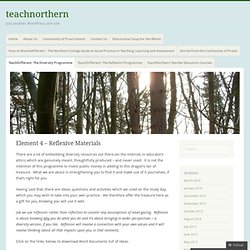
It is not the intention of this programme to invest public money in adding to this dragon’s lair of treasure. What we are about is strengthening you to find it and make use of it yourselves, if that’s right for you. Having said that, there are ideas, questions and activities which we used on the study day, which you may wish to take into your own practice. We therefore offer the treasure here as a gift for you, knowing you will use it well. (nb we use ‘reflexion’ rather than reflection to counter any assumptions of navel-gazing. Click on the links, below, to download Word documents full of ideas. Would you like to read, watch or hear more about diversity? Check out our list of resources – the stuff that’s been inspiring us as we planned the programme. Would you like activities to help you reflect, alone?
Like this: Your Unguided Tour of #TDReflex14. Welcome to the unguided tour of The Reflexion Programme at The Northern College (or #TDReflex14 as it’s known online).
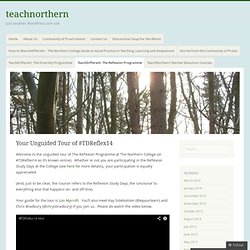
Whether or not you are participating in the Reflexion Study Days at the College (see here for more details), your participation is equally appreciated. (And, just to be clear, the ‘course’ refers to the Reflexion Study Days, the ‘uncourse’ to everything else that happens on- and off-line). Your guide for the tour is Lou Mycroft. You’ll also meet Kay Sidebottom (@kaysoclearn) and Chris Bradbury (@chrysbradbury) if you join us. Please do watch the video below. Spaces are beginning to open up now for pre-course communication – see below. Week 1 (28th April) – Finding a Voice. Educational blogs and their effects on pupils' writing - CfBT. Date: 20 March 2014 This research report explores the effect that writing on online blogs can have for primary school pupils.
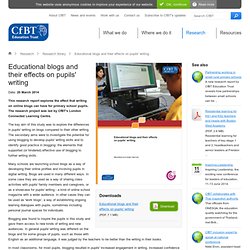
The research project was led by CfBT's London Connected Learning Centre. The key aim of this study was to explore the differences in pupils' writing on blogs compared to their other writing. The secondary aims were to investigate the potential for using blogging to develop pupils' writing skills and to identify good practice in blogging: the elements that supported (or hindered) effective use of blogging to further writing skills. Many schools are launching school blogs as a way of developing their online profiles and involving pupils in digital writing.
Blogging was found to inspire the pupils in this study and gave them access to new kinds of writing and new audiences. Obedience is not a virtue. A choice I want you to make a choice.
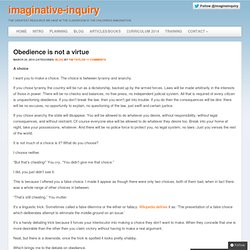
The choice is between tyranny and anarchy. If you chose tyranny the country will be run as a dictatorship, backed up by the armed forces. Laws will be made arbitrarily in the interests of those in power. There will be no checks and balances, no free press, no independent judicial system. If you chose anarchy the state will disappear. It is not much of a choice is it? I choose neither.